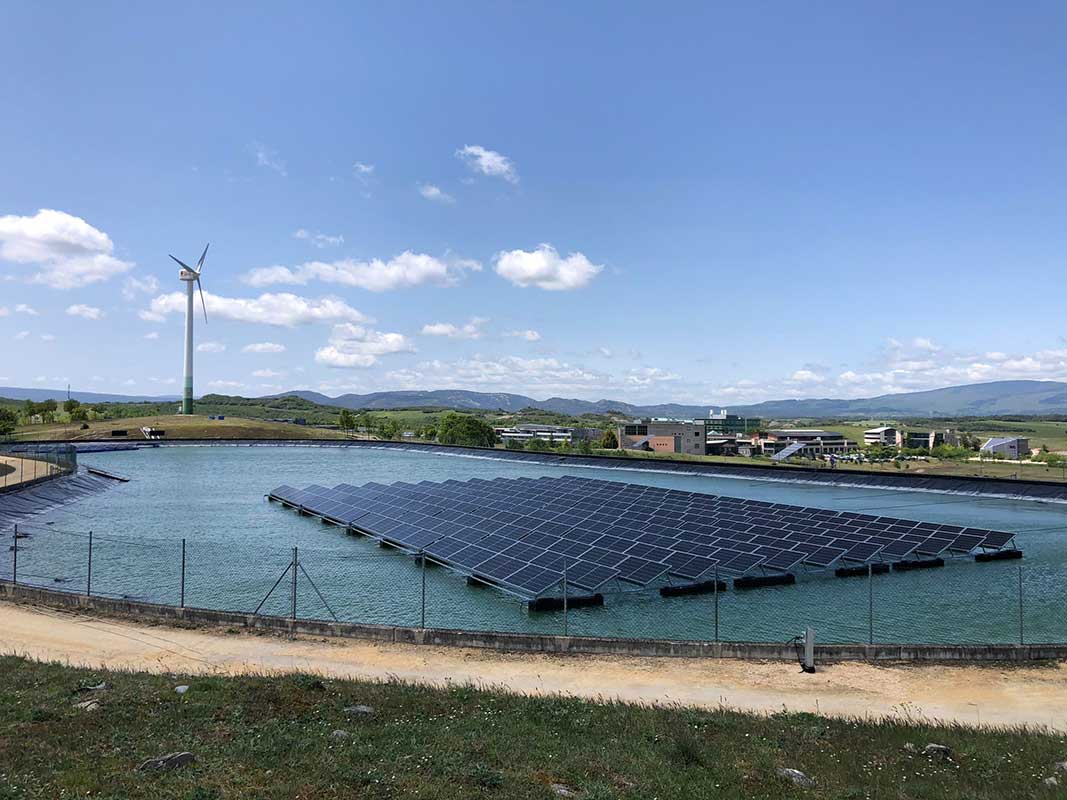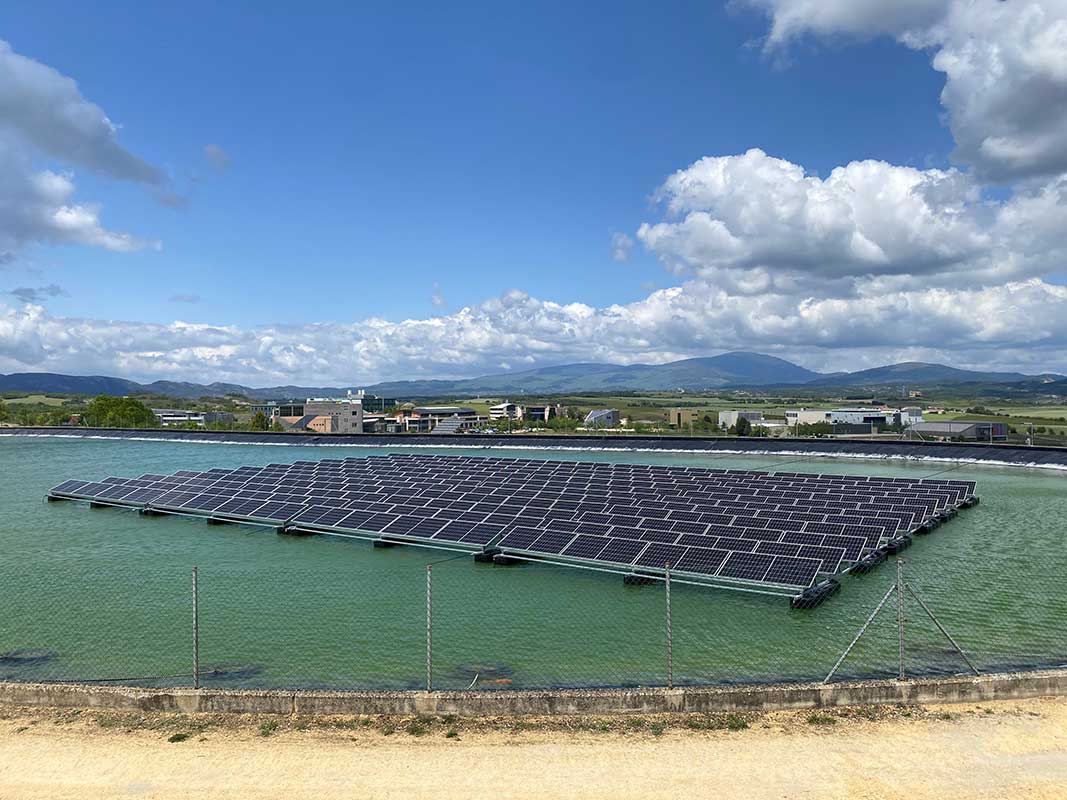SOLFLOT
ECO-DESIGN OF AN EFFICIENT FLOATING SOLAR PUMP SYSTEM
The market for photovoltaic solar power is well developed, but not so much that of mounting the panels in a floating mode on preferably inland waters of reservoirs or storage ponds. The opportunity offered by such systems lies in the fact that they have several advantages over a conventional photovoltaic installation: non-occupation of land that could be used for other purposes; 20-40% higher generation thanks to the cooling of the panels, bifaciality and optimisation of the layout of the plants in terms of angle and orientation of the panels; reduction of up to 33% of evaporation; structures less exposed to the wind than on land; non-consumption of drinking water for cleaning the panels; and allowing for the industrial reconversion of irrigation and industrial cooling ponds, or the possibility of hybridisation with the turbine in the hydraulic jumps of reservoirs, which enables better generation management and therefore better energy storage. Reservoirs in Spain, which are affected by the general public domain regulations, require further development of the regulatory framework, which is currently slowing down the implementation of the system. In the meantime, many floating solar plants are being implemented on agricultural and industrial ponds as a self-consumption solution in these sectors, with significant energy consumption.
In Spain alone, excluding reservoirs, there are around 60,000 water reservoirs that could be used for photovoltaic installations. The Ministry for Ecological Transition and the Demographic Challenge has identified 106 state-owned reservoirs suitable for the installation of floating solar plants. In terms of generation, the potential market throughout Spain is estimated at around 8,600 megawatts (MW) in reservoirs and 10,000 in water reservoirs. There are irrigation and industrial ponds, old mining wells and several reservoirs in the Basque Country that could be used for floating solar photovoltaic installations. At present, the renewable generation park does not reach 3,000 MW of installed capacity in the Basque Country.
EMICA SOLAR designs and supplies floating solar solutions and has led SOLFLOT. The circular economy consultancy firm, GRUNVER SOSTENIBILIDAD, and the project management company, NORAY ADVISORY, have been involved in its implementation.

DRIVING FACTOR


 OBJECTIVES
OBJECTIVES
- Lead the development of floating photovoltaic energy in the Basque Country, and be a benchmark in the Spanish market with value-added floating solutions.
- Create an eco-design of an existing prototype to generate improvements based on a Life Cycle Analysis (LCA).
- Reduce the use of raw materials and improve energy production during the use phase, as well as simplify maintenance.
- Analyse the environmental impact that this type of application may have on the area where it is located (including the impact on flora and fauna).
- Create a system for monitoring variables to evaluate the impact in the production phase.
 RESULTS
RESULTS
- Reduction in the weight of the structure thanks to the new design of floats with reduced thickness and 100% recycled material.
- High degree of inclination of the panels, which increases electrical output and reduces particle sedimentation, as well as the subsequent maintenance and cleaning tasks.
- The passage of light into the water is guaranteed thanks to minimal contact with the floats in the water, and the limited use of plastic.
- Reduction of all environmental impact indicators by 34%.
- 37% reduction in the product's impact on climate change.
 CONCLUSIONS
CONCLUSIONS
- The interpretation of applicable regulations for the generation of environmental reports according to regulatory requirements has turned out to be one of the most time and effort consuming tasks, more than originally considered.
- There is no information in life cycle inventory databases on the impact on ecosystems associated with water occupation (such as degradation of materials, or light deprivation in the aquatic environment).
ENVIRONMENTAL
TECHNICAL
ECONOMIC
COMMERCIAL
ON THE MARKET





